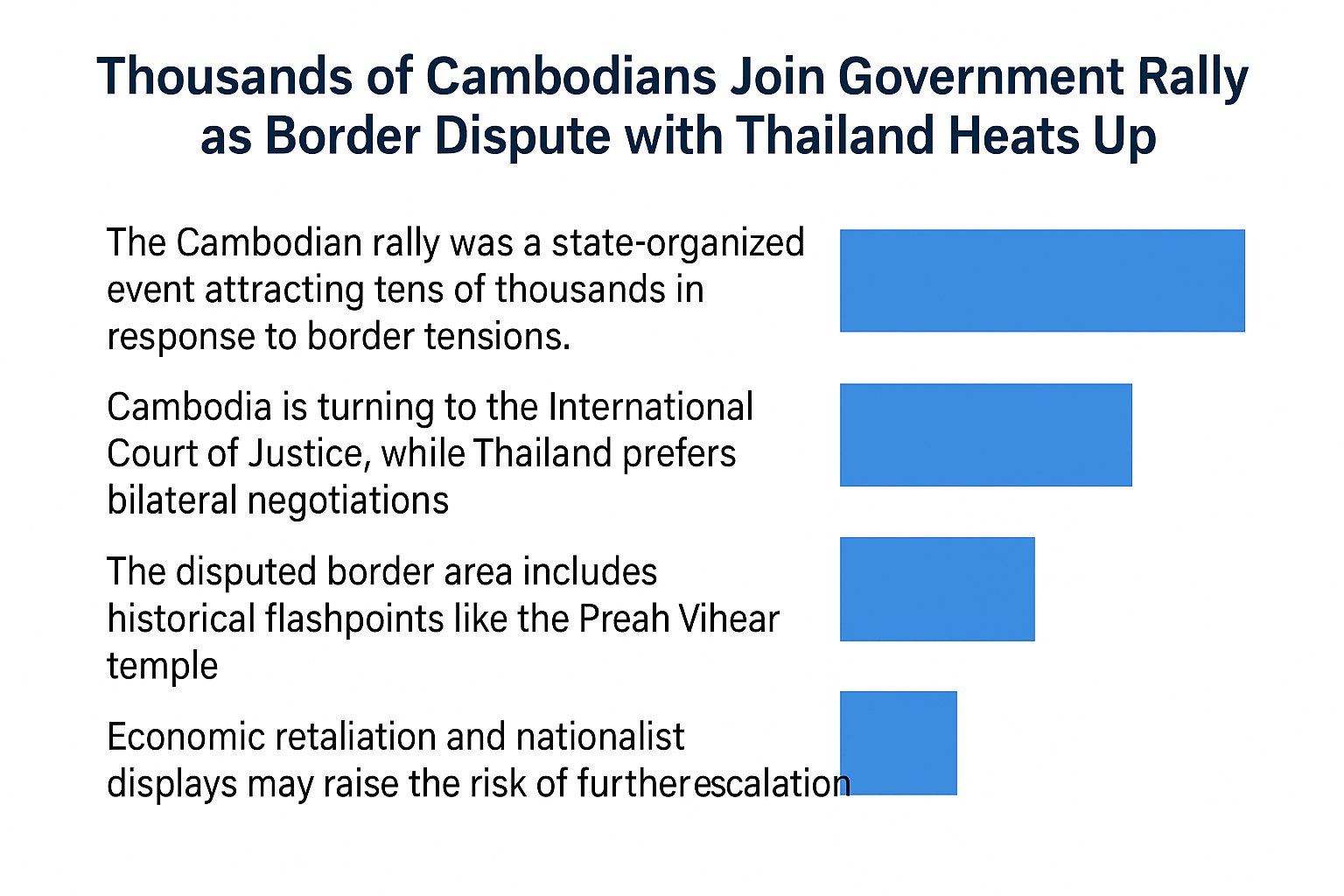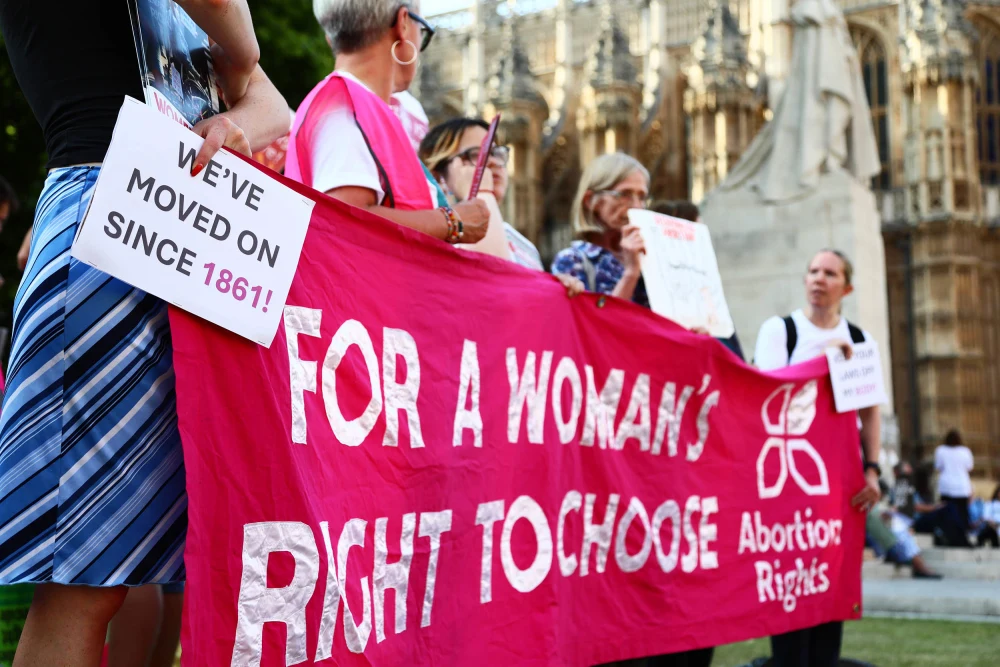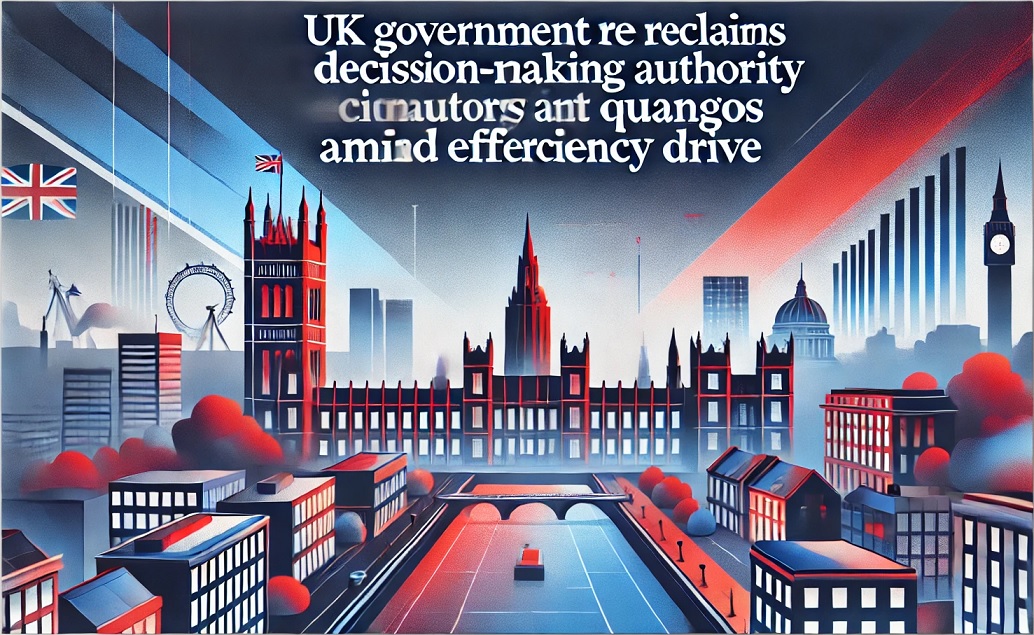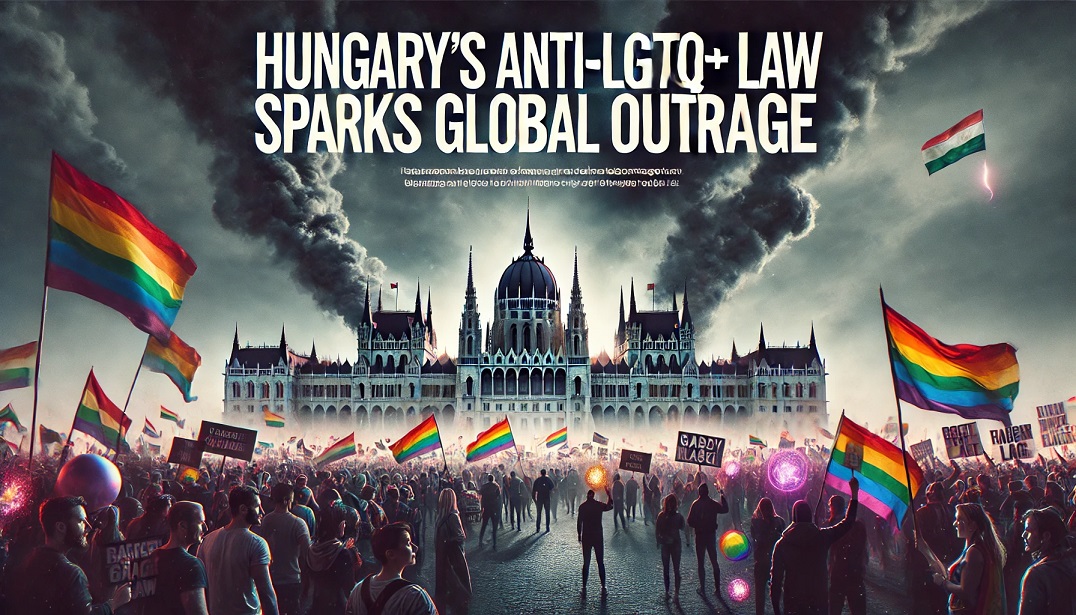Tens of thousands of Cambodians took to the streets of Phnom Penh in a state-backed rally supporting the government’s stance in an intensifying territorial dispute with Thailand over a contested river border. Officials claim the demonstration shows national unity, while critics warn of rising tensions in the region.
Thousands of Cambodians Join Government Rally as Border Dispute with Thailand Heats Up
By Independent Correspondent | June 18, 2025
In a powerful display of patriotism and political alignment, tens of thousands of Cambodians took to the streets of Phnom Penh today to support their government amid a sharp escalation in the long-standing border dispute with neighboring Thailand.
The government-organized rally, which included monks, civil servants, students, and families, was led by Deputy Prime Minister Hun Many, the younger brother of Prime Minister Hun Manet. Protesters waved Cambodian flags and held portraits of both the current Prime Minister and former leader Hun Sen. Chants of “We will not give away an inch of Cambodian land!” echoed throughout the capital as demonstrators marched peacefully, voicing their firm stance on protecting national sovereignty.
This latest show of national unity comes just weeks after a fatal border skirmish on May 28, in which a Cambodian soldier was killed near the disputed Chang Bok area. Tensions have flared along the 820-kilometer border where several segments remain undemarcated—a legacy of French colonial rule that continues to fuel diplomatic friction.
Cambodian authorities accuse Thailand of illegally digging trenches and increasing troop presence near the disputed areas. They also allege that Thai drones have been observed breaching Cambodian airspace. In contrast, the Thai government has denied any provocative actions, stating that all their operations remain within their recognized territory and are in line with the 2000 Memorandum of Understanding between the two countries.
Despite a Joint Boundary Commission meeting held on June 14 in an effort to de-escalate tensions, Cambodia has decided to pursue international legal action. Government officials confirmed they are filing a case at the International Court of Justice (ICJ) over four separate disputed zones, including the site of the recent clash and three ancient Hindu temples.
Thailand, however, remains firm in its position that the matter should be resolved bilaterally and has rejected ICJ involvement, citing previous rulings that only covered specific areas. The Thai Foreign Ministry stated they are willing to continue dialogue but will not accept a legal process that might threaten their territorial claims.
The Cambodian government responded with a string of economic and cultural countermeasures: cutting off Thai electricity imports, halting Thai fruit and vegetable shipments, banning Thai films and shows on national television, and restricting Thai digital services across Cambodian infrastructure. Thailand, in turn, temporarily suspended electricity exports to border towns and increased customs checks at major crossings.
These aggressive actions have sparked concern among regional analysts. The border area—especially around the UNESCO-listed Preah Vihear temple—has been a flashpoint for violence in the past. From 2008 to 2011, clashes in this region claimed dozens of lives, and many fear that history may repeat itself if tempers continue to flare.
For Cambodia’s government, the rally served as more than a symbolic show of unity—it was also a calculated message to its neighbor and the international community. Prime Minister Hun Manet has emphasized the need to protect Cambodia’s territorial integrity while simultaneously portraying his administration as strong, decisive, and backed by the people.
Critics, however, argue that the event served domestic political goals just as much as diplomatic ones. Some have raised concerns over the use of state resources to organize the march and questioned whether participants joined voluntarily or under pressure from government institutions.
Still, for many in the crowd, the event was deeply emotional. “This is our land. We cannot sit quietly when outsiders try to take it,” said Sokha Phann, a university student who joined the rally with her classmates. “We are not against the Thai people—we just want our borders respected.”
While both sides insist they wish to avoid full-scale conflict, the next few weeks are critical. Another Joint Boundary Commission meeting is scheduled for September, but with tempers high and nationalistic rhetoric dominating the narrative on both sides, a peaceful resolution remains uncertain.

















Comments 0